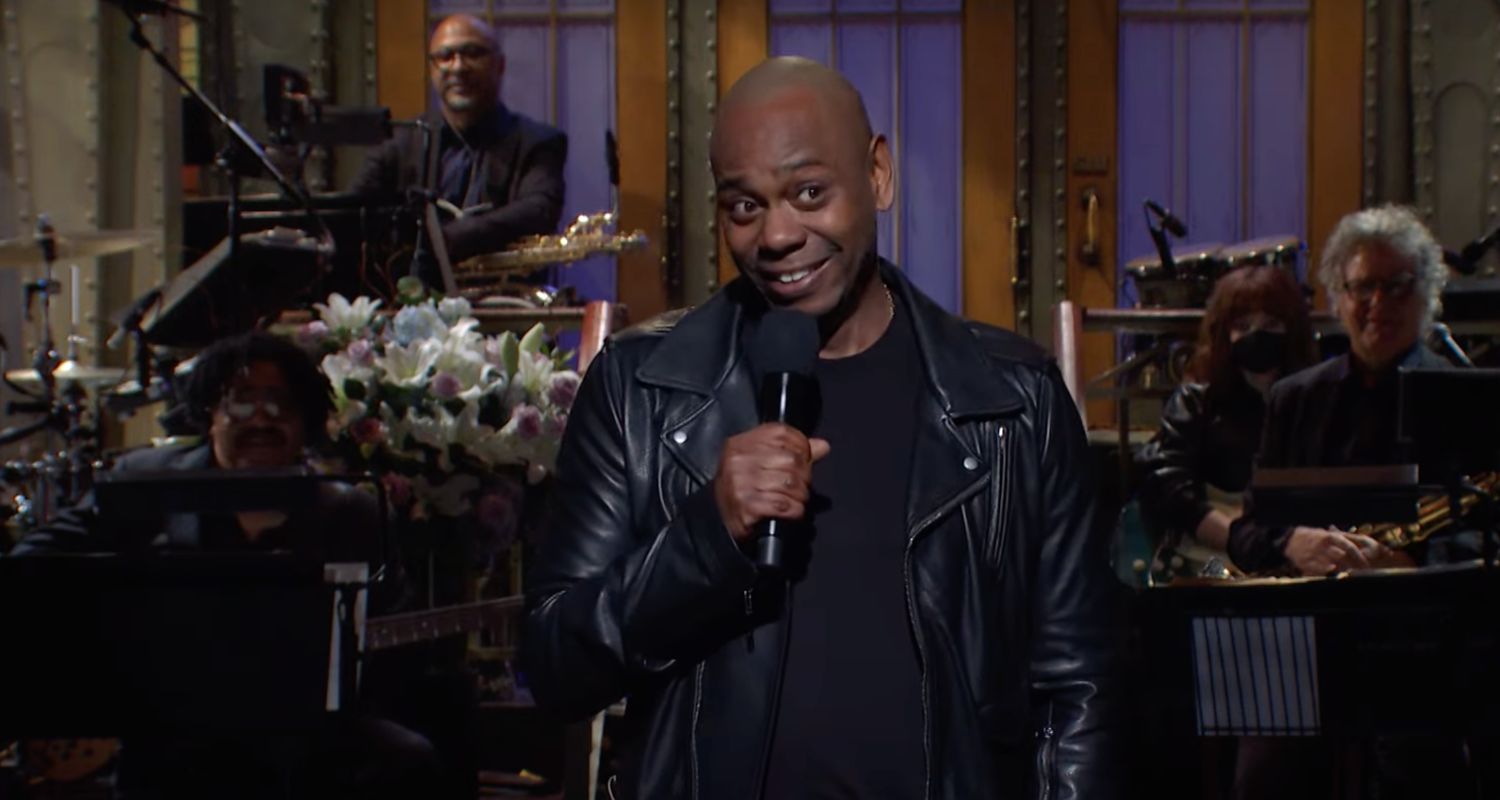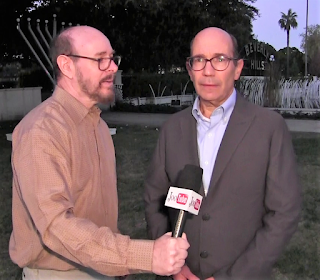 |
Dave Chapelle normalizing antisemitism on Saturday Night Live
|
Jonathan Tobin in JNS.Org: "The comedian is right that we need to stop trying to cancel and fire
those who say offensive things. But his SNL monologue ignored the truth
about a major source of hate.
... Chappelle’s willingness to rationalize, if not excuse, some of what
Kanye West and Kyrie Irving have done—even if he was also making fun of
them and their critics—sheds light on something quite important: that
black antisemitism isn’t treated seriously. This is aside from the fact
(the enthusiastic reaction from the SNL in-studio audience notwithstanding) that his jokes about it weren’t very funny. ...
The main theme of his monologue, however, was about the perils that
await anyone who makes the mistake of saying the words “the” and “Jews,”
“together in sequence.” He began it by reading a ritual statement about
opposing antisemitism, rightly noting that saying something like it
would have “bought some time” for Kanye West after he had made a series
of antisemitic statements and tweets.
Behind Chappelle’s teasing of West was a sense that while the
rapper/fashion mogul was the author of his own troubles, those who were
angry at him were also deserving of blame. He seems to think that West’s
threats aimed toward Jews didn’t deserve to be taken seriously.
He took particular aim at those avoiding the issue of Jews
controlling Hollywood, accusing them of being too sensitive. According
to Chappelle, saying Jews run show business is, “not a crazy thing to
think, but a crazy thing to say out loud.”
That extended to an even more problematic assessment of the
controversy surrounding basketball player Kyrie Irving, who has been
suspended by the National Basketball Association’s Brooklyn Nets for
tweeting a link to an antisemitic film and then being slow and somehow
vague when it came to apologies and disavowals about Jew-hatred. As
Chappelle put it, “Kanye got in so much trouble; Kyrie got in trouble.”
The comedian claimed here that Irving’s support of a film called
“From Hebrews to Negroes,” which claimed, among other antisemitic
libels, that African-Americans are the real Jews, and that the actual
Jews are frauds, was not worthy of much outrage. He went further by
asserting that what followed—the list of demands placed on the athlete
to get him out of hot water—was excessive.
“I know the Jewish people have been through terrible things all over
the world, but you can’t blame that on black Americans,” said Chappelle.
“You just can’t.”
He went on to say that “a fair punishment” for Irving would be to
require him to “post a link to ‘Schindler’s List.’” The focus on the
player was wrong, he added, as the audience laughed, because “Kyrie
Irving’s black ass was nowhere near the Holocaust.”
I don’t often agree with Jonathan Greenblatt of the Anti-Defamation
League. But he was right when he tweeted: “We shouldn’t expect
@DaveChappelle to serve as society’s moral compass, but disturbing to
see @nbcsnl not just normalize but popularize #antisemitism. Why are Jewish sensitivities denied or diminished at almost every turn? Why does our trauma trigger applause?”
Chappelle doesn’t seem to understand what’s really behind the
controversies surrounding West and Irving. Their insults directed at
Jews and attempts by those who seek to minimize or shrug them off—as was
the case with the efforts of pundit Candace Owens to stand up for West—are evidence of the troubling rise of black antisemitism.
No one claimed that Irving had anything to do with the Holocaust.
West’s tweet about going “deaf-con 3” against the Jews was also not the
moral equivalent of Iran’s threats about wiping Israel off the map.
But they are a reflection of pop culture’s toleration of tropes of
Jew-hatred that have helped generate the growth of antisemitic attitudes
among American blacks. As numerous studies
have shown, African-Americans are far more likely to think tropes about
Jew-hatred are true than other demographic slices of the population.
It is those attitudes, and not the sort of grievances against Jews
rooted in myths, which people like West and Irving cite, that are at the
root of violence against Jews.
Chappelle and the SNL audience who cheered him in a Manhattan studio act as if the epidemic
of violence currently being experienced by Orthodox Jews in Brooklyn
happened 80 years ago in Europe. But it is happening right now, only a
subway ride away in the same city in which they were sitting. And the
perpetrators are largely African-Americans, not Nazis or Trump
supporters.
We can attribute this to the influence of a Jew-hater like Louis
Farrakhan, whom many in the world of the arts treat as a legitimate
spokesperson for African-Americans, rather than an extremist hatemonger.
We can also point to the growing influence of the Black Lives Matter
movement and the intersectional catechism it promotes, falsely labelling
Jews and the State of Israel as white, colonialist oppressors. Sadly,
that’s a movement that the ADL has supported, rather than opposed.
Black hatred against Jews persists and grows. Yet it is invisible in newspapers like The Times and erased completely in the influential pop-culture venues of network comedy shows.
The correct response to Chappelle should not be renewed calls for his
cancellation. Instead, it should be to demand that such groups as the
ADL, which purport to speak for Jewish interests, consistently focus on
fighting the true sources of contemporary Jew-hatred, rather than on
waging partisan battles on behalf of their liberal Democratic political
allies.
Just as important, it is not unreasonable to ask influencers like
Chappelle to start treating black antisemitism as a genuine problem, not
something about which one can mock supposedly hyper-sensitive Jews for
their fumbling efforts to use cancel culture against African-Americans
who promote hate."
See ADL's article on "Alleged Jewish 'Control' of the American Motion Picture Industry" 1999.






